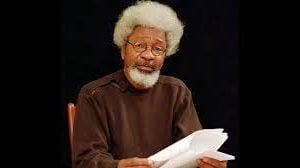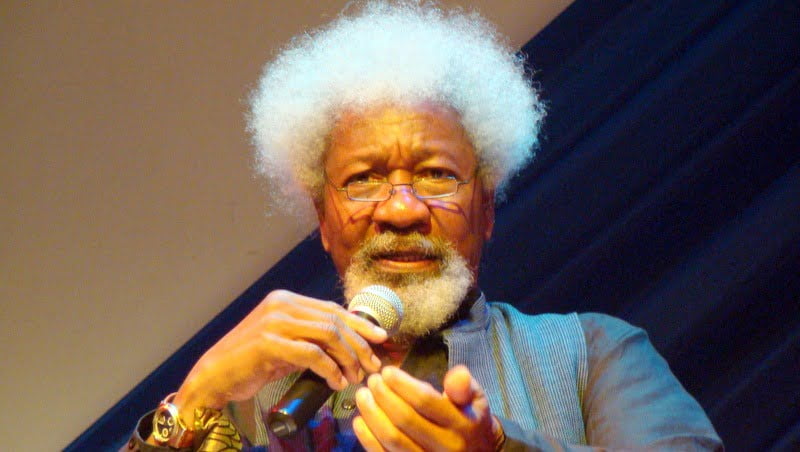Akinwande Oluwole Babatunde Soyinka Biography
Akinwande Oluwole Babatunde Soyinka, best known by his pen name Wole Soyinka, is an internationally renowned Nigerian dramatist, novelist, poet, and essayist. Born on July 30, 1934, he is the first African to receive the prestigious Nobel Prize for Literature, which he received in 1986.
The broad and varied body of work of Wole Soyinka includes plays, novels, poetry, and essays characterized by his deft grasp of the English language. He is renowned for his keen wit, insightful insights, and unwavering dedication to truth and justice. As a result, he has become a true oracle for the African continent, providing penetrating insights into its complex realities.
The writings of Wole Soyinka are crucial for gaining a deeper grasp of African culture. His work is both intellectually stimulating and emotionally evocative, illuminating the complexity and variety of the African experience.
Key TakeAway
- Full Name: Akinwande Oluwole Babatunde Soyinka
- Stage Name: Wole Soyinka
- Born: 13 July 1934 (age 88 years old)
- Place of Birth: Abeokuta, Ogun, Nigeria
- State Of Origin: Ogun State
- Nationality: Nigerian
- Height: N/A
- Parents: Samuel Ayodele Soyinka, Grace Eniola Soyinka
- Siblings: Atinuke Tinu Aina Soyinka, Femi Soyinka, Yeside Soyinka, Omofolabo Folabo Ajayi-Soyinka, Kayode Soyinka, Folashade Soyinka
- Wife • Spouse: Barbara Skeath, Olaide Idowu, Folake Doherty-Soyinka (m. 1989)
- Girlfriend • Partner: N/A
- Children: Olaokun Soyinka, Morenike Soyinka, Makin Soyinka, Moremi Soyinka-Onijala, Iyetade Apampa, Peyibomi Soyinka-Airewele, Oretunlewa Soyinka, Amani Soyinka, Tunlewa Soyinka, Bojode Soyinka, Eniara Soyinka
- Occupation: Playwright • Novelist
- Net Worth: $15 million
Akinwande Oluwuwa Babatunde Soyinka, best known by his pen name Wole Soyinka, was born on July 30, 1934 in Abeokuta, Nigeria, into an interesting and complex society. He is a descendent of Isara’s monarchs. Nigeria was a British colony at the time. He is the second kid of seven.
His siblings are Atinuke Tinu Aina Soyinka, Femi Soyinka, Yeside Soyinka, Omofolabo Folabo Ajayi-Soyinka, and Kayode Soyinka. His younger sister Folashade Soyinka passed away on her first birthday. The cultural and theological variety of his upbringing, together with his early access to electricity and radio, contributed unquestionably to the richness and complexity of his creative works.
Soyinka Soyinka, the second of seven siblings, was born into a family with deep roots to Nigeria’s founding fathers. His mother, Grace Eniola Soyinka, was a political activist and ardent Anglican. His father, Samuel Ayodele Soyinka, was an Anglican pastor and headmaster. Even though he was nurtured in a Yorùbá-Christian religious home, he finally abandoned his faith as he aged.
Unquestionably, the religious and cultural diversity of Wole Soyinka’s neighborhood, as well as his access to a variety of media, inspired his work. In addition to tackling current political and social concerns, his plays, novels, poetry, and essays frequently integrate aspects of Nigerian folklore and mythology. Wole Soyinka’s keen wit and unwavering dedication to truth and justice have earned him the prestigious Nobel Prize in Literature, making him a true seer for the African continent.

Akinwande Oluwole Babatunde Soyinka Education
As a student at Abeokuta Grammar School, Wole Soyinka shown an early aptitude for writing and was won many honors for his works. In 1946, he was accepted into one of Nigeria’s best high schools, Government College in Ibadan.
From 1952 to 1954, he attended University Of Ibadan, which was associated with the University of London. There, he studied English and Greek literature as well as Western history with, among others, the British literary historian Molly Mahood.
In 1954, Wole Soyinka wrote and produced for the Nigerian Broadcasting Service the radio drama Keffi’s Birthday Treat. During his tenure at university, he co-founded the Pyrates Confraternity, the first fraternity in Nigeria.
Early schooling paved the way for Wole Soyinka’s eventual career as a writer and political activist. His plays, novels, poetry, and essays gained him countless plaudits and prizes, including the 1986 Nobel Prize in Literature. He remains a popular and powerful person in Nigeria and around the world, utilizing his words and voice to advocate for justice and liberty.
After graduating from University College Ibadan in 1954, Wole Soyinka launched a productive and renowned career as a writer and political activist. In 1959, he released his first book of poems, Idanre and Other Poems, which garnered him considerable recognition and cemented his position as a significant literary figure in Nigeria.
In the 1960s, Wole Soyinka’s plays, such as The Trials of Brother Jero and The Lion and the Jewel, were significant cultural landmarks in Nigeria. These works, which dealt with corruption, injustice, and power abuse, helped bring attention to Nigeria’s difficulties under its military dictatorships.
Throughout his career, Wole Soyinka has courageously advocated for justice and liberty via his writing and public speaking. In 1986, he was awarded the prestigious Nobel Prize for Literature in recognition of his accomplishments. Using his exceptional abilities, he remains a prominent and important person in Nigeria and abroad, inspiring and empowering others.
Akinwande Oluwole Babatunde Soyinka Personal Life
Wole Soyinka, a prominent author and Nobel laureate, has been married three times and divorced twice. His first marriage was to the late British author Barbara Skeath, whom he met in the 1950s at the University of Leeds.
This relationship resulted in the birth of two children: Olaokun and Morenike Soyinka. In 1963, he wed a Nigerian librarian called Olaide Idowu, and the couple produced four additional children: Makin Soyinka, Moremi Soyinka-Onijala, Iyetade Apampa (who has since gone away), and Peyibomi Soyinka-Airewele. In addition, he has a son named Oretunlewa Soyinka from a prior relationship.
Amani Soyinka is the youngest daughter of Wole Soyinka. He married Folake Doherty-Soyinka in 1989, and they have three sons: Tunlewa Soyinka, Bojode Soyinka, and Eniara Soyinka. Wole Soyinka revealed to the world in 2014 that he was battling prostate cancer.
Throughout his career, Wole Soyinka has authored several books, plays, and poetry, demonstrating his proficiency as a wordsmith. He is well-known for his political involvement and frequently uses his writing to criticize the Nigerian administration. In the 1960s, he was imprisoned for opposing the country’s military government; in 1986, he was given the Nobel Prize in Literature.
Wole Soyinka is a revered scholar in addition to his writing and activism. He obtained a degree in English literature from the University of Leeds and afterwards taught in universities in Nigeria and overseas. He holds the position of professor emeritus at Nigeria’s Obafemi Awolowo University.
Wole Soyinka stays humble despite his numerous successes and continues to use his position to speak out against injustice. He continues to write and engage in political activities, maintaining a prominent figure in both the world of literature and Nigerian politics.
Akinwande Oluwole Babatunde Soyinka Career
After receiving his master’s degree from the University of Leeds, Wole Soyinka set out to write plays that fused European and Yorùbá theater traditions. His first significant play, The Swamp Dwellers, premiered in 1958, and the following year, his comedy The Lion and the Jewel attracted the attention of a number of persons at London’s Royal Court Theatre.
Invigorated by this response, Wole Soyinka moved to London and landed a position as a play reader at the Royal Court Theatre. His plays continued to explore the tense interplay between development and tradition in Nigeria. 1957 marked the debut of The Invention, his first play to be performed at the Royal Court Theatre. He also published poetry such as The Immigrant and My Next Door Neighbor in the Nigerian journal Black Orpheus.
In 1986, when he became the first African to receive the Nobel Prize for Literature, Wole Soyinka’s literary skill was lauded when he was given the Nobel Prize for Literature. He was lauded as a someone “who creates the drama of living from a broad cultural viewpoint and with lyrical undertones.”
Reed Way Dasenbrock has observed that the awarding of the Nobel Prize in Literature to Wole Soyinka is “expected to generate a great lot of debate, but is unquestionably deserved.” He also notes that this is the first time the Nobel Prize has been granted to an African author or any author from the “new literature” in English that has developed from former British colonies.
Wole Soyinka praised Nelson Mandela and his battle for liberation in South Africa in his Nobel acceptance speech, “This Past Must Address Its Present.” His speech was a straightforward condemnation of apartheid and the systems of racial segregation that the National South African government imposed on the majority of the population. He was also awarded the Agip Prize for literature in 1986.
In August 2014, Wole Soyinka gave a recording of his address titled “From Chibok with Love” to the World Humanist Congress in Oxford, which was organized by the International Humanist and Ethical Union and the British Humanist Association.
The topic of the Congress was Freedom of thought and expression: Forging an Enlightened 21st Century, and he received the 2014 International Humanist Award. He has also been a scholar-in-residence at the Institute of African American Affairs at New York University.
Akinwande Oluwole Babatunde Soyinka Social Media
Instagram handle: @Wolesoyinka
The Twitter account for the Wole Soyinka: @Wolesoyinkacentre.
Akinwande Oluwole Babatunde Soyinka Net Worth
Wole Soyinka is a prominent Nigerian playwright whose works have earned him a number of honors, including the Nobel Prize in Literature. He is also an ardent political activist who frequently opposes the Nigerian government.
It is estimated that Wole Soyinka has a net worth of $15 million, which he has used to assist several causes, including the arts and human rights.
Disclaimer: Every Biography and Contents Published on myDelsu are for Knowledge purposes; Nevertheless, Please Don’t Hesitate to Reach Out to Us for Any Corrections, Suggestions, or Copyright Infringement!!
See what others are Reading




